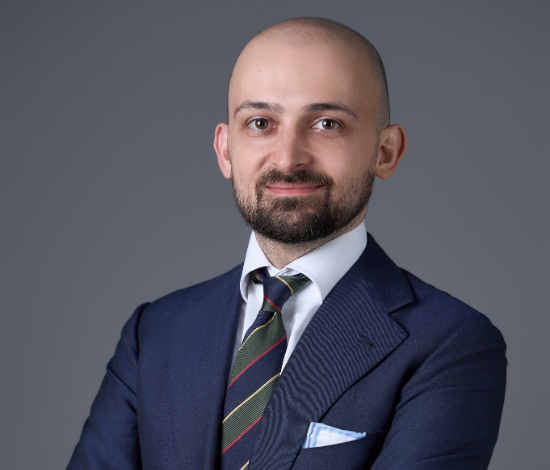
Mikhail Sergeevic Spektor , PhD
College of Arts and Sciences
Program Director, Psychology Program
Assistant Professor, Psychology Program
Biography
Mikhail Spektor holds a Ph.D. in psychology from the University of Basel and B.Sc. and M.Sc. degrees in psychology from the University of Heidelberg, Germany. Before joining VinUniversity, he was an assistant professor at the University of Warwick, UK, and the Universitat Pompeu Fabra, Spain, and worked as a postdoctoral researcher at the University of Freiburg, Germany. His main line of research concerns the psychological processes underlying human decision making. He relies on formal computational models and combines them with evidence from behavioral experiments, psychophysiological recordings, and real-world observational data to obtain a comprehensive understanding of how people process information and make choices in a variety of situations. His research has been published in leading international peer-reviewed journals such as PNAS, Psychological Review, Psychological Science, Trends in Cognitive Sciences, and Journal of Experimental Psychology: General.
• Decisions under risk and ambiguity
• Learning and decision making
• Context-dependent preferences
• Computational cognitive modeling
• Memory and attention
• Naturalistic decision making
• Cognitive psychology
• Research methods
• Computational cognitive modeling
• Bayesian statistics
• Social psychology
• Judgment and decision making
• Negotiatio
1. Alba, C., Walasek, L., & Spektor, M. S. (2024). Attention-driven imitation in consumer reviews. Decision.
2. Olschewski, S.*, Spektor, M. S.*, & Le Mens, G. (2024). Frequent winners explain apparent skewness preferences in experience-based decisions. Proceedings of the National Academy of Sciences, 121. doi:10.1073/pnas.2317751121
3. Spektor, M. S.*, Kellen, D.*, Rieskamp, J., & Klauer, K. C. (2024). Absolute and relative stability of loss aversion across contexts. Journal of Experimental Psychology: General, 153(2), 454–472. doi:10.1037/xge0001513
4. Spektor, M. S., Kellen, D., & Klauer, K. C. (2022). The repulsion effect in preferential choice and its relation to perceptual choice. Cognition, 225, 105164. doi:10.1016/j.cognition.2022.105164
5. Spektor, M. S., Bhatia, S., & Gluth, S. (2021). The elusiveness of context effects in decision making. Trends in Cognitive Sciences, 25(10), 844–857. doi:10.1016/j.tics.2021.07.011
6. Fontanesi, L., Gluth, S., Spektor, M. S., & Rieskamp, J. (2019). A reinforcement learning diffusion decision model for value-based decisions. Psychonomic Bulletin & Review, 26(4), 1099–1121. doi:10.3758/s13423-018-1554-2
7. Spektor, M. S., Gluth, S., Fontanesi, L., & Rieskamp, J. (2019). How similarity between choice options affects decisions from experience: The accentuation of differences model. Psychological Review, 126(1), 52–88. doi:10.1037/rev0000122
8. Gluth, S.*, Spektor, M. S.*, & Rieskamp, J. (2018). Value-based attentional capture affects multi-alternative decision making. eLife, 7, 1–36. doi:10.7554/eLife.39659
9. Spektor, M. S., Kellen, D., & Hotaling, J. M. (2018). When the good looks bad: An experimental exploration of the repulsion effect. Psychological Science, 29(8), 1309–1320. doi:10.1177/0956797618779041
10. Spektor, M. S., & Kellen, D. (2018). The relative merit of empirical priors in non-identifiable and sloppy models: Applications to models of learning and decision making. Psychonomic Bulletin & Review, 25(6), 2047–2068. doi:10.3758/s13423-018-1446-5
• 2018: Ph.D. in Psychology, University of Basel, Switzerland
• 2014: M.Sc. in Psychology, University of Heidelberg, Germany
• 2012: B.Sc. in Psychology, University of Heidelberg, German
• 2022 Co-investigator of Warwick Research Development Fund: Science Development Award
• 2021-2022 Juan de la Cierva fellowship
• 2022 Consortium for Advanced Studies Abroad fellowship (obtained but declined)
• 2021 Fernandes fellowship
• 2020-2022 Co-investigator of Fundación BBVA 2019: Economía y Sociedad digital grant
• 2020-2022 Co-investigator of Ministry of Science, Innovation and Universities: Proyectos I+D+i 2019 grant
• 2019 Steven Karger prize (PhD dissertation award)


